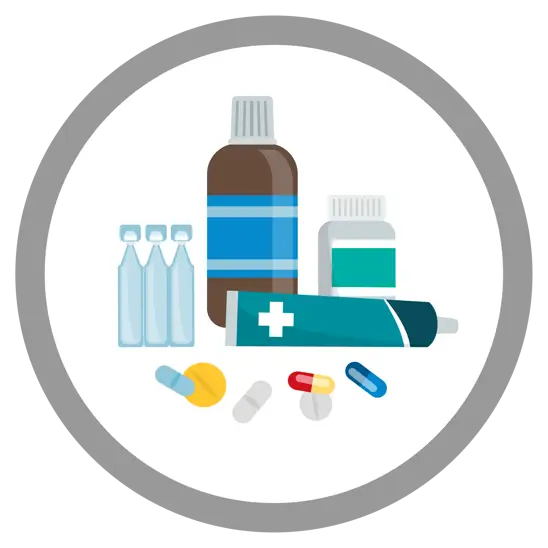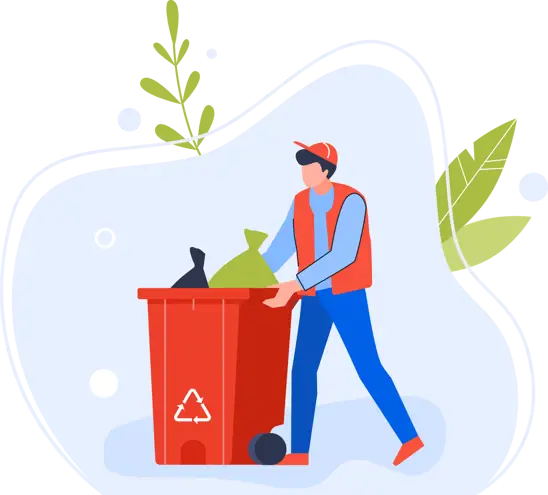
Clinical Waste
WM101 supplies a wide range of clinical waste bins manufactured to the highest quality and compliance standards, helping clients implement a responsible clinical waste disposal and collection system throughout their organisation.

Clinical Waste Disposal
Clinical waste is produced in healthcare settings, such as GP surgeries, dentists, hospitals, veterinary practices, and research labs. Specifically, it is the type of waste that poses a risk of infection, disease, or harm to anyone who comes into contact with it.
From storage and collection to transportation and treatment - proper clinical waste disposal is crucial for preventing the spread of bacteria and dangerous equipment, ensuring a safe and hygienic environment for people.
Examples of clinical waste include:
- Sharps
- Liquid medicine waste
- Anatomical waste
- Pharmaceutical waste
- Infectious waste
- Gypsum / dental amalgam
- Microbial waste
- Cytotoxic / cytostatic waste
- Contaminated PPE
- Contaminated lab equipment

Our Clinical Waste Bin Solutions
Compliant use of clinical waste bins and storage is the foundation of safe medical waste management – and is the responsibility of every employee in the building. If not managed responsibly, medical waste can be life-threatening to people and animals.
At WM101, we offer a variety of clinical waste bin options to suit the diverse needs of healthcare facilities across the UK. These include but are not limited to:
- Blue pharmaceutical bins
- Yellow / orange sharps bins
- Orange clinical waste bags
- Back and yellow-striped clinical waste bags
- Coloured clinical waste bins (lockable)
See our sanitary waste solutions for nappy and sanitary waste bins.
Our waste management specialists will be happy to consult on your region’s local clinical waste disposal and collection services, working together to implement a secure, traceable, and confidential waste disposal process from end to end.

What Colour Are Clinical Waste Bins?
According to the Health Technical Memorandum (HTM) 07-01, the recognised clinical waste bin colours are:
- Blue bag / bin – pharmaceutical waste (non-hazardous)
- Yellow bin (or lid) – sharps waste (contaminated with medicines or chemicals)
- Orange bin (or lid) – sharps waste (non-medicinally contaminated)
- Yellow bag – infectious waste (contaminated with medicines or chemicals)
- Orange bag – infectious waste (non-hazardous)
- Purple bag / bin – cytotoxic / cytostatic waste
- Red bin (or lid) – anatomical waste
WM101 for Specialist Clinical Waste Disposal
WM101 works with clients on a consultative basis, assessing individual requirements and supplying suitable confidential waste bins, bags, containers, and labels to ensure peace of mind that all waste management systems are legally compliant.
We strive to deliver measurable added value, supporting all aspects of our clients’ clinical waste disposal responsibilities. Our experienced team can guide you through pre-acceptance waste audits, waste prevention, and waste minimisation projects to guarantee a seamless service from start to finish.
We are partnered with fully licenced, reputable companies that utilise responsible collection, transportation, and treatment processes to protect people and the environment per the latest legislation. They are ideally located at hubs across the UK, providing cost-effective, flexible collections tailored to your needs and budget.
Frequently Asked Questions
Once your clinical waste bin has been collected, it is transported to a licenced waste facility. Here, it is heat-treated or incinerated.
The Healthcare Technical Memorandum 07-01 covers the self-management of clinical waste disposal. It explains how to responsibly segregate medical waste from general waste and recycling, with guidance for colour-coding clinical waste bins, bags, and containers.
According to the UK Government guidelines, infectious waste, offensive waste, and treated waste (e.g., autoclave floc) can be stored for up to 7 days outside and 14 days inside.
Refrigerated anatomical waste can be stored for up to 14 days, while unrefrigerated anatomical waste can be stored for up to 24 hours (72 hours over a weekend).
Other types of medical waste, such as cytotoxic / cytostatic drugs and dental amalgam, can be stored for up to 6 months.

Get low-cost waste collections for your business
WM101 has a team of specialists ready to help you optimise your waste management. Contact us for your free site visit and quotation today!